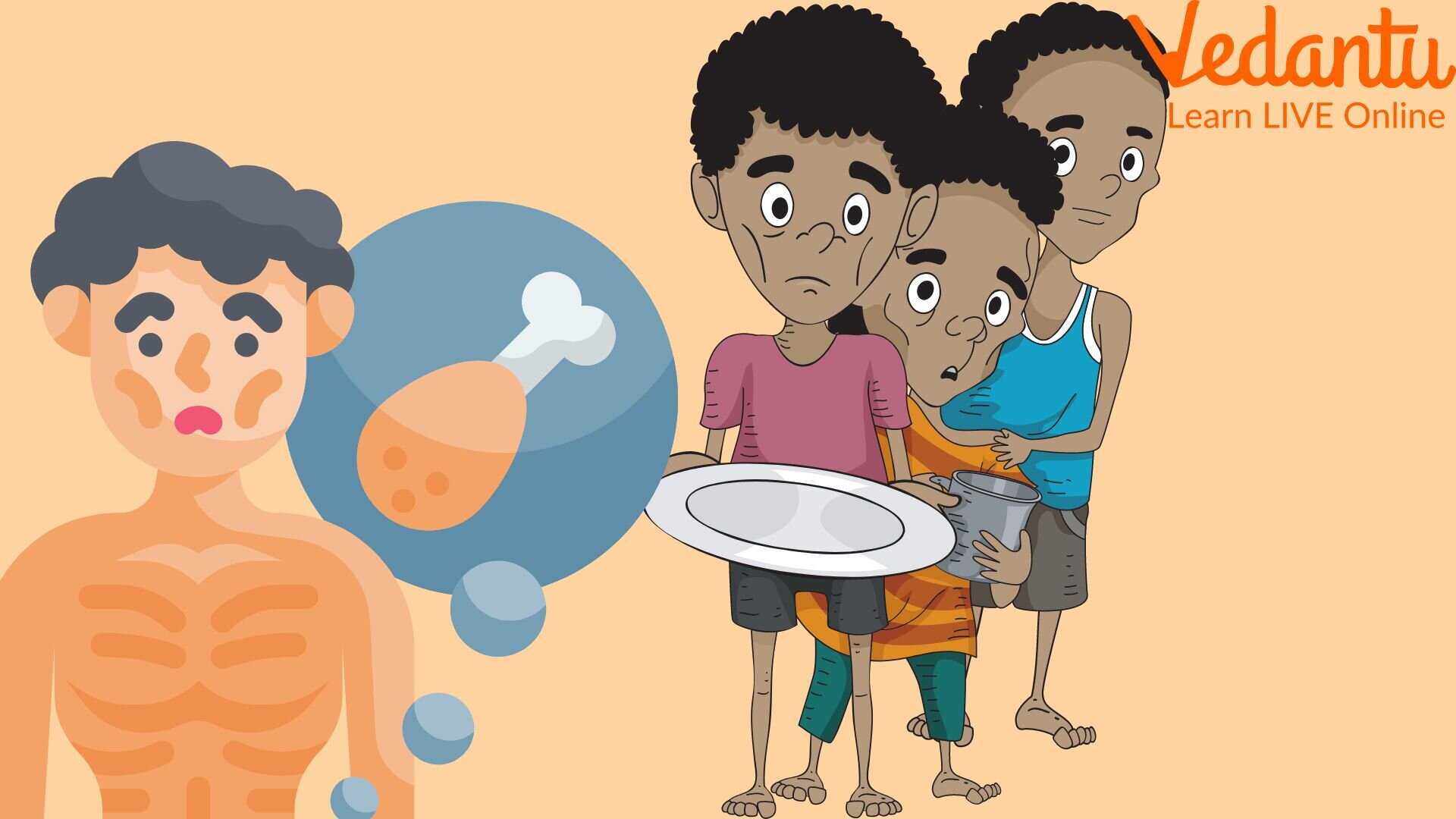What is Starvation and How Long Can We Survive without Eating Food?
Introduction
The biological functions of our body depend on the food and water consumed. Every cell in our body is a biological engine that needs fuel to run. We get energy from food. Surviving without water is not possible for more than a few days. But, we can survive without food for a longer period. In this article, we will discuss what is starvation and how long can you survive without food.
Not eating food is roughly defined as starvation. Without proper energy, our cells will eventually die. How long can we survive starvation? Well, scientists have no proper answer as it varies. Let us take a quick look at what food and starvation are first.
What is Food?
Food is the substance we eat for nutrition. It can be raw or cooked. It is consumed through mastication and then digested before proper assimilation. The important nutrients are then absorbed into the tissues of different organs through blood vessels. Food is essential for the maintenance of proper growth and physiological functions.
What is Starvation?
We eat food to live. Not eating food is called starvation. Prolonged starvation can lead to imminent death. The time period of survival without food varies from person to person. Starvation has different stages.

Starvation and its Effects
1. Phase I
During this phase of starvation, the glucose level in the blood reduces due to a lack of food consumption. To maintain the normal blood sugar level, glycogen stored in the muscles and liver is used. The body of a man eating food has stored excess glucose in this form in the muscles and liver.
His body will also use protein to convert into glucose during the first phase of starvation. However, this phase lasts only for a few hours as the glycogen level depletes. When it happens, fats and proteins are used as substrates to convert into glucose.
Fats are broken down to form fatty acids and glycerols. Fatty acids are then used as the prime source for producing energy in skeletal muscles and brain cells.
2. Phase II
The second phase of not eating food will result in the breakdown of fatty acids in ketone bodies in the liver. These ketone bodies serve as the main source of energy. After a week of starvation, the person’s body starts using ketone bodies as the prime source of energy. His brain will also start using the same along with glucose to survive. In this phase, proteins that are not useful for survival will be broken first. This phase most likely can continue for a few weeks.
3. Phase III
In this phase, all the fat reserves are emptied. The depletion of fat reserves results in the switching from fat to proteins for survival. It becomes the major source for producing the respiratory substrates without food.
Muscles are the biggest reserves of protein. The skeletal muscles are depleted first resulting in a bony structure of a person. Even the protein essential for cellular functions is broken down to provide respiratory substrate for survival. Cell functions eventually degenerate.
The symptoms of this phase are abrupt weight loss, withdrawal, apathy, listlessness, and the enhanced possibility of developing diseases due to the dropping of immunity. Skin becomes flaky and hair changes colour.
Death From Starvation
If we observe closely, we will find out that people actually don’t die out of starvation. They eventually form a morbid disease and die. Immune-related diseases are very common in people suffering due to lack of food.
One’s body will eventually run out of things to break down and make energy for the cells to survive. The finite resources will deplete resulting in a bony structure and prone to diseases. Eventually, the person will die from marasmus and kwashiorkor.
How Long Can You Survive without Food and Water?
This question has a variable answer as different physiological conditions show different survival periods. We need food to live. Even a day without food makes us lethargic and irritable. Surviving days without food and water is not possible. Surviving without food but drinking water can make a person survive for 21 to 40 days.
Research suggests that males with BMI lower than 13 and females lower than 11 cannot survive. In fact, it also suggests that people with normal BMI tend to lose more weight and volume than those who are obese during the first few days of starvation.
The human body is designed for survival from starvation. Even though the time period varies, the process is entirely the same. As the phases suggest, the glycogen stored in the muscles and liver is finished first within a few hours. It is then the fat reserves deplete first and then the proteins that are not required become the respiratory substrate. Once everything is finished, our bodies start breaking down the proteins present in skeletal muscles. Hence, it is hard to answer how many days a person can survive without food.
Observations Made Related to Starvation
When scientists wanted to know how long a person can live without food but with water, they found that females are better at surviving starvation. The data received during hunger strikes shows how a person can survive for weeks and even months if he consumes water.
The physiological functions began to change in absence of food but continue to a certain extent in presence of water. It was found that people on death beds can survive up to 14 days without food and water. Eventually, the blood pressure drops and the person feels dizzy. Hypotension results in improper blood flow and collapse of the vital organs.
In a nutshell, we can conclude that the human body is fairly resilient to weeks of improper consumption of food and water.







